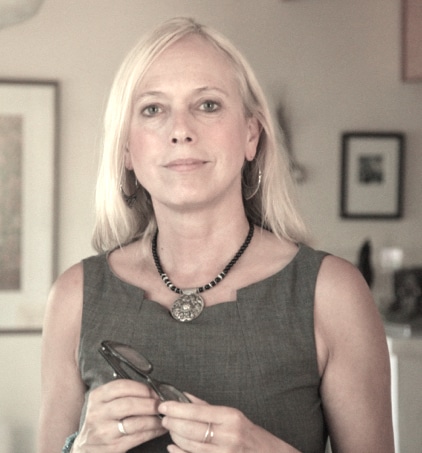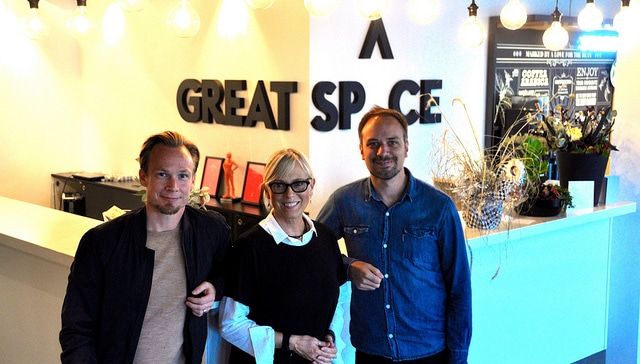
The Future of Work
BY PAKSY PLACKIS-CHENG
Jody Turner, Culture of Future, is an insight strategist and writer with a foundation in design. For the past 16 years Turner has advised over 200 brands on project initiatives small, large, local and global in scope. Her brand strategy specialty includes igniting new directions.
To date her favorite work has been with TrendWatching, IDEO, Starbucks, Nike, Google, Apple, …
impactmania caught up with Jody Turner, who recently returned from a speaking engagement in Sweden. We spoke with Turner about her projects and the future of work.
Jody, tell me about your most recent speaking engagement.
It is interesting, my work changes as the research topic, brand project or speaking invitation shifts. Recently the topic is once again about design thinking and the future of work culture. This led me to create my own startup of sorts, more on that later.
Recently I was invited to speak at Great Sp^ce Sweden, an innovation and incubator hub for tech startups in Sundsvall, north of Stockholm, Sweden.
Being in Sundsvall is inspiring; the town has a great lifestyle center populated with late 19th century Renaissance styled stone buildings. This is where Great Sp^ce is housed.
The Swedes have a very smart sense of technology and design and as a result, Great Sp^ce is a high-level influencer curating potential super stars. As we redesign how we live work and play into the future, who are the players and how will we work together?

Great Sp^ce Founders, Mikael Bergström and Jesper Johansson, with Jody Turner in Sundsvall, Sweden.
What was your main message?
I was brought in to talk about innovation and new ways of working. Great Sp^ce provides incubation, knowledge banking, and opportunities of neutral collaborative intelligence. It teaches us how to contribute and evolve the future, the who and the how of what we are becoming.
Give me a little glimpse of what the future of work would look like?
We are hearing a compelling stat out there predicting that 50 percent of the U.S. and U.K. workforce will be freelance by 2020. Today you may notice that cafes and workspaces are full at all hours of the day with freelancers. As people work outside of companies in an ever shifting landscape, fluidity, and problem solving approaches such as design thinking become key in career solidarity.
Today process and innovative outcome is everything. With this new work skills are emerging. Everyone’s trying to define how they work best, what the best environment is for their highest outcome, and what is best for their future career. We hear terms like entrepreneur as we work outside of companies with our own vision of work, or the term intrapreneur as we work inside of companies with a startup mentality. I have been coining the phrase Xtrapreneur as an important transitional term.
An Xtrapreneur works inside or outside of a company exploring new ground with the same seriousness as their day job. They may be shifting to a new skill or career, working on education or projects that align with their purpose driven interests. It is a transitional time, we will see more Xtrapreneurs as industries evolve.
What about for example, Uber drivers who are part of the new technology yet with no long-term prospect?
Technology has driven a plethora of new businesses and will continue to do so. Ten years ago Uber did not exist and Uber itself is evolving and changing (self-driving cars, airplanes). Who could say if one door closes another door will open as new technology expands the world of crowdsourcing. It is an overlapping world.
We are creating the future as we go, and in some ways it is beta living – whatever we are involved with today, like software, will continually upgrade and change. If you’re involved with Uber, if you’re a driver, you probably know this is not a job for a lifetime. Technologies change so stay fluid and liquid as new doors open.
How do startups impact your professional work?
As a future consultant, I knew my work was not a static job rather it is required that I reinvent myself. Startup mentality is just this: you have to have the reinvention juices if you’re going to work within the framework of bringing the future in, or having future impact.
This is why co-working spaces are vital in helping teach people how to come up with great ideas along with how to work together in ever evolving ways. Great Sp^ce Sweden is such a place. They are elevating Sundsvall by bringing in a global knowledge bank for their community, along with knowledgeable speakers and global partnerships sharing fresh approaches.
Is Great Sp^ce Sweden similar to existing co-working spaces such as a WeWork or an Impact Hub?
The Swedes are great at what they do, they work well together and create amazingly well designed worlds. Interestingly enough, standing out for a Swede is not the norm. Great Sp^ce asks you to do what most Swedes would not, stand out above the crowd with your innovative ideas.
As a hybrid incubator/co-working space, Great Sp^ce creates the pressure, the funding, the support, and the education for rare ideas to excel. This is a neutral space for cross industry and competitive companies to come together with silos down, and fresh thinking up. Candidates are measured by their proven success and outcomes.
The space is evolving… the model is flexible. They model what they ask of their constituents.
I think WeWork and Impact Hub are vital in serving a broad community of people creating change. I was one of the founding members of Impact Hub Berkeley, it was inspiring working with a variety of change makers and definitely moved my projects forward.
Do you have insights for young female entrepreneurs who are starting out?
As a woman working in corporate America, I was helped along the way by many mentors and also by having a strong personal mission or vision. Know who you are and what you bring — acknowledge, support and grow this in others, and a natural community will form around you.
Your mission has to be a flexible one able to evolve and adapt. For instance, if you are Jens Skibsted from Copenhagen and you are doing Biomega bikes and you decide to do an electric bike, you say to the world, “I’m doing transportation that is healing the world” versus “I am making bikes.” Thusly your latest electric bike makes sense to your public.
This opens up the paradigm for you to be a contributor at large.
There is an article I wrote for Good on entrepreneurship that gives more detail.
Who has made an impact on your professional DNA?
Ivy Ross. Ivy is the Vice President of Design and User Experience for Hardware Products at Google. I have worked with her over the years in a variety of roles. She is a woman to respect as she is a major achiever, a top design thinker, who embodies creativity and wisdom and yet remains very human.
Ivy hired me for my first trend project and has hired me multiple times after. She brought me in front of my first audience in New York City, a panel that ended up resulting in my doing a really dynamic series of projects with Apple. I support Ivy with interesting ideas when I come across them… she deserves it.
What Apple project was that?
That was one of their first Apple.com/pro articles, when Apple provided public facing information about how professionals use Apple design and technology. This was just one of several projects I did for Apple at the time, it was a dream come true for a designer and insight provider.
You are considering your own startup idea, with that can you let us know what you think is needed for social impact?
If we care enough about what’s going on to begin to create solutions and write ourselves into that story as a solution provider versus the problem maker, the world begins to excite us and we begin to feel empowered in our lives. For social impact we need to have our purpose clearly defined so we move from a place of energy and drive.
This is why co-working, incubation spaces, or internal exploration labs are needed — new ways of doing things so we learn how to be a contributor within every new model of change, every new opportunity that opens up as a result.
What is next in your world?
I recently had my 11-year-old grandnephew live with me for a bit. Now he’s transitioned to his dad and his life is stabilizing. It was eye opening and heartwarming and hard for us both! I took time off of work in order to be able to focus on what we needed to do together. I have a new appreciation for families and in particular people that are single parents.
Now I’m back at work and I have new energy. It is time for me to drive forward my own startup/project. I am in consideration.
I was just in Seattle meeting with Javier Goyeneche, who does up-cycled consumer goods from ocean plastics.
Howard Schultz [CEO Starbucks Coffee] brought Javier in to do a pop-up segment of his Ecoalf products including Javier’s project for Starbucks, an upcycled backpack from coffee beans. This sits in a sea of product within the large and beautiful Seattle Roastery flagship.
What if every company had at least one upcycled product, had the experience of its impact and how impassioned people would be about it? This could really change how we do business.
Related to this I have a startup project I am discussing with Great Sp^ce, we shall see. Here’s to the future!
Give me a word that describes your journey so far?
Magical… = challenging, ever more challenging + truly inspiring!

